After World War II drew to a close, countless women who had discovered purpose in the workforce as factory workers, engineers and pilots were encouraged to revert back to housewife status—whether they wanted to or not. Even America’s first significant feminist superhero felt the hit. Wonder Woman comics took a turn for the worse. They lost their feminist message, became primarily romantic, and didn’t bounce back until decades later. The 50s brought with it an era of extreme sexism that lingered until the 70s, when the women’s liberation movement that emerged in the previous decade started really gaining traction.
The impact of television, now the format, had never in a fictional context been more important. Enter Lynda Carter as Diana Prince in 1975, Charlie’s Angels and more. Enter women leading stories in a way that had never happened before. As the world began to change and people started to demand equality—in not just the context of gender but in all areas of life—we were set to begin a new era. Here come the 80s.
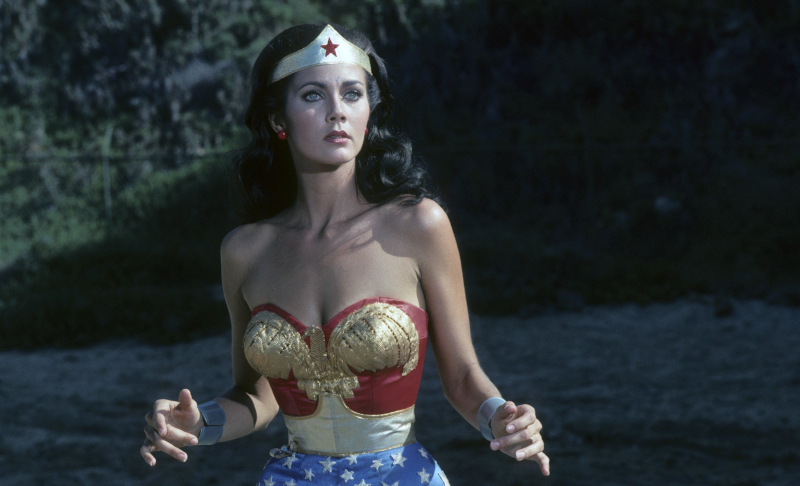
The 80s are known for a lot of things: pop music, perms, glow sticks (can you tell I wasn’t actually there?). But what a lot of people don’t know is the time was home to the birth of a new type of action star. Cinema was booming with machine guns, aliens, and macho men. It also had other plans.
You could easily credit Ellen Ripley as the first to initiate the western cinematic concept of an action heroine who presents in a typically masculine way. She might not technically be the first, but it’s her significance that matters here. Her body was toned, she was the informed character in a leadership role, and she was the saviour. Strong both physically and mentally, with a presence a lot of young people hadn’t seen back then. Ripley of course appeared in the original Alien film, which came out in 1979.
But Aliens changed her tune. Watching James Cameron’s action/horror for the first time was breath-taking and empowering in a unique way: it was different from the great first film. Even I—who am lucky enough to see a fair amount of women in science-fiction compared to those days—was struck by Ripley making the decision to rescue Newt against all odds. You also had presumably gay marine Vasquez, just as amazing. But the wonder here was in the fact Sigourney Weaver was the star and still allowed to be all these things. Maternal, but lethal. For once in a genre usually dominated by muscles and subliminal sexism, it was a woman in the dirty tank top, sweating and preparing for a fight—rescuing the vulnerable girl in her arms.
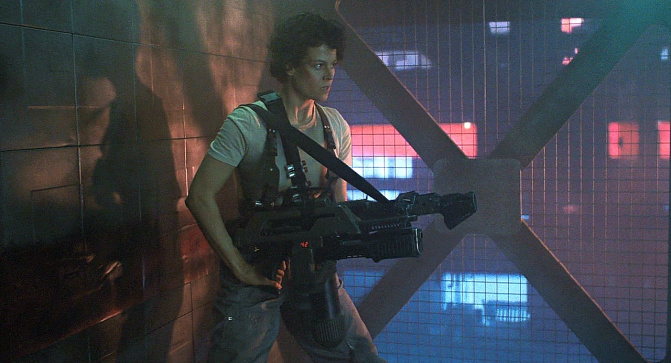
Propelled forward by the likes of Weaver’s kick ass protagonist, more of these characters started to appear. Terminator 2: Judgement Day starred Arnold Schwarzenegger, one of the world’s biggest action stars and a hyper-masculine god. Huge muscles, easy on the eyes, the very definition of a studio’s dreamboat. It’s the 90s now. All awesome of course, but nothing we’ve not seen before. But eyes widened as we reconnected with Linda Hamilton’s Sarah Connor. We open on her doing pull ups on her holding cell’s bed frame, covered in sweat and clearly jacked despite the actresses’ small frame. This time she got to hold the big machine guns, she got to dive away from explosions. Sarah Connor represented a new brand of heroism in the same way Ripley did. One I think young women of the time sorely needed.
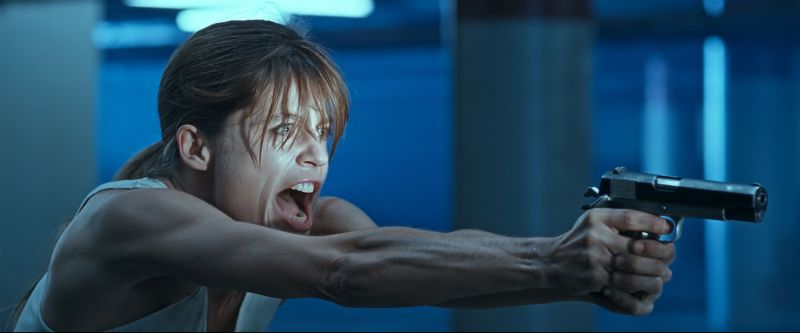
Another staple of the rise in powerful female characters was Thelma & Louise. They might not have been action stars, but boy did they take action. They didn’t have any special powers, they weren’t in a war (not a physical one anyway) and there weren’t any Xenomorphs in sight either. Their battle was a different one entirely. But it was one of English-speaking cinema’s biggest status-quo changers. Ridley Scott’s 90s gem came off the back of a revolution in the way we saw women on-screen. It made use of a different type of strength, but it had the same mentality and fight that made the likes of Sarah Connor so impactful and goosebump-raising for the young girls who let their imaginations run wild. Whether it be in the pages of a comic book nobody reads anymore (seriously, nobody was reading Wonder Woman) or on a screen.
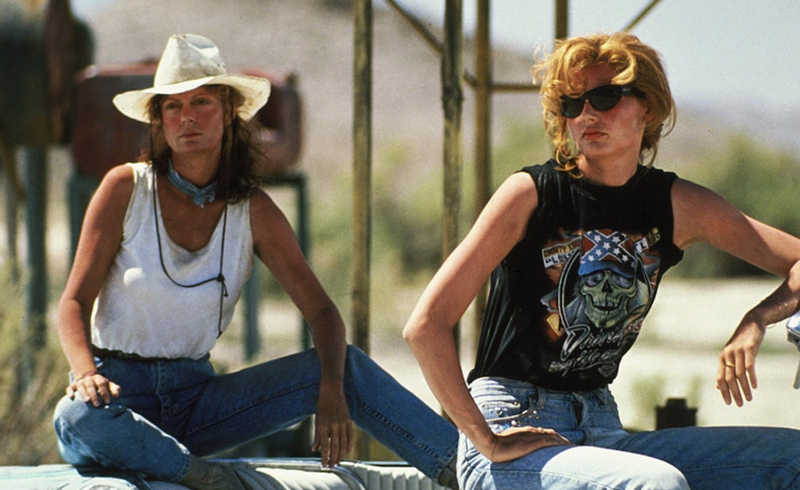
Going forward, the call for female heroes only grew—and in the early 90s, after a Wonder Woman run of depowered, Steve Trevor-based arcs finally ceased, feminist communities such as riot grrrl used Wonder Woman as an image they could claim for their own cause—the connection between on-screen power and real life change began to grow rapidly. What once inspired behind closed doors was a new medium of rebellion.
We now live in a time of Captain Marvels and live action Diana Princes. And although the topic of representation is far from untouched, for me it was interesting to take a look back. To see where it came from, when it took a hit and when it bounced back in a way nobody could smother. And hey, people are reading Wonder Woman again. While it might seem strange to equate how far we have come in gender politics to made up bad-asses from Amazon mythology, it is undeniable the effect they had not just on the people who watched them but on the media landscape we are still working on today.
Empowerment can be a rallying call for anyone to fight injustice, no matter who you are. Things are far from perfect. The number of LGBT, trans and non-white starring roles in action and fantasy are still dismal. But we subverted expectations once before, we can do it again. There was a time Wonder Woman comics were dying out and the ever lessening group of fans were beginning to lose hope of a movie ever surfacing. That was less than a decade ago.
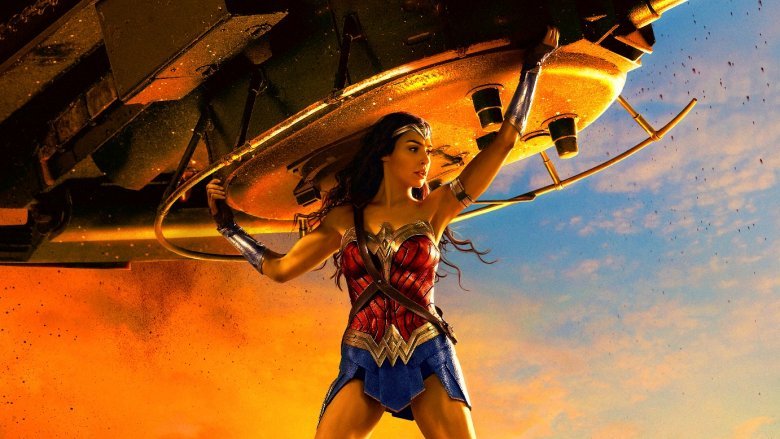
This article was inspired by Wonder Women: The Untold Story of American Superheroines. It was also inspired by the Buffy Summers, the Dana Scullys and the Princess Shuris of the world. Remember the hairs on your arm standing up during the No Man’s Land scene in 2017’s Wonder Woman? Me too. Now imagine the electricity in the air when Ripley blow torched the Xenomorph queen on opening night. The 80’s was a time of reinvention for the way women were integrated into the action genre, thank god for that.
“Get away from her, you bitch!”
